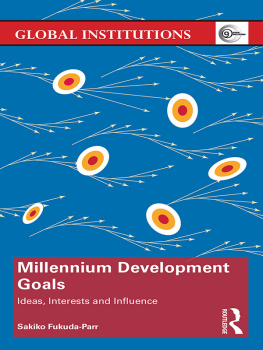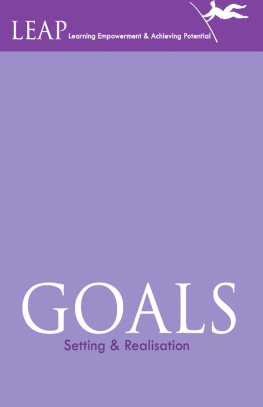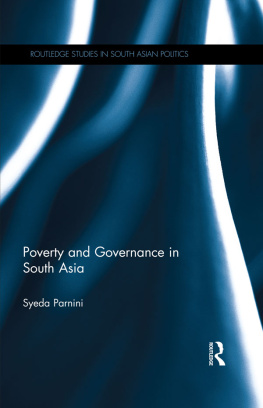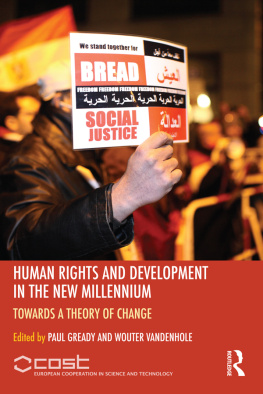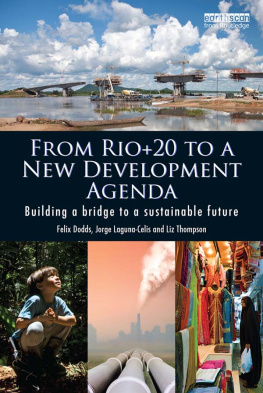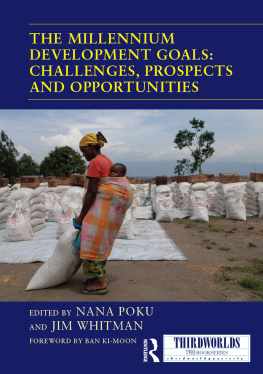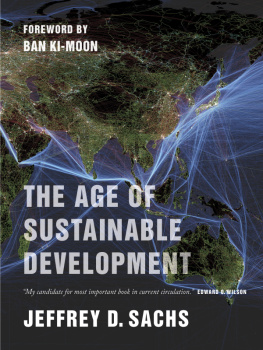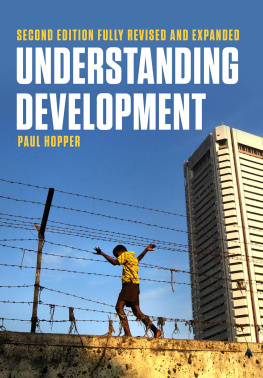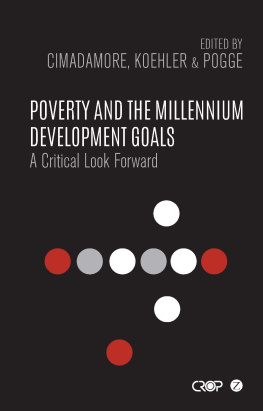This book, by one of the foremost analysts of development goals, presents a review of the strong influence but also the limitations of the United Nations MDGs. It holds important lessons on the use of global goals, and it is a must read in the era of the SDGs launched by the UN in 2015.
Jos Antonio Ocampo, Professor, Columbia University, USA. Former UN Under-Secretary-General for Economic and Social Affairs
This critically important book examines the consequences of using numerical goals for development. Focusing on the major contemporary development initiative, Sakiko Fukuda-Parr exposes serious limitations of governance by indicators, particularly for a human rights approach to development.
Sally Engle Merry, New York University and author of The Seductions of Quantification: Measuring Human Rights, Gender Violence, and Sex Trafficking
Just like the king in The Little Prince claimed to command the sun to set every evening, the MDGs have been credited with results that would most likely have happened anyhow, while obscuring increased inequalities and structural causes. A privileged witness and participant, Sakiko Fukuda-Parr brilliantly documents in this book two decades of development practice and narrative and draws unavoidable conclusions.
Roberto Bissio, coordinator of Social Watch
Millennium Development Goals
Heralded as a success that mobilized support for development, the Millennium Development Goals (MDGs) ushered in an era of setting development agendas by setting global goals. This book critically evaluates the MDG experience from the capabilities and human rights perspectives, and questions the use of quantitative targets as an instrument of global governance. It provides an account of their origins, trajectory and influence in shaping the policy agenda, and ideas about international development during the first 15 years of the twenty-first century. The book explores:
whether the goals are adequate as benchmarks for the transformative vision of the Millennium Declaration;
how the goals came to be formulated the way they were, drawing on interviews with key actors who were involved in the process;
how the goals exercised influence through framing to shape policy agendas on the part of both developing countries and the international community;
the political economy that drove the formulation of the goals and their consequences on the agendas of the South and the North;
the effects of quantification and indicators on ideas and action; and
the lessons to be drawn for using numeric goals to promote global priorities.
Representing a significant body of work on the MDGs in its multiple dimensions, compiled here for the first time as a single collection that tells the whole definitive story, this book provides a comprehensive resource. It will be of great interest to students, researchers and policymakers in the fields of development, human rights, international political economy, and governance by numeric indicators.
Sakiko Fukuda-Parr is Professor in the Graduate Program in International Affairs at The New School, New York. From 1995 to 2004, she was Director of the United Nations Development Programme Human Development Reports.
Global Institutions
Edited by Thomas G. Weiss
The CUNY Graduate Center, New York, USA
and Rorden Wilkinson
University of Sussex, Brighton, UK
About the series
The Global Institutions Series provides cutting-edge books about many aspects of what we know as global governance. It emerges fromour shared frustrations with the state of available knowledgeelectronic and print-wise, for research and teachingin the area.The series is designed as a resource for those interested in exploring issues of international organization and global governance. And since the first volumes appeared in 2005, we have taken significant strides toward filling conceptual gaps.
The series consists of three related streams distinguished by their blue, red, and green covers. The blue volumes, comprising the majority of the books in the series, provide user-friendly and short (usually no more than 50,000 words) but authoritative guides to major global and regional organizations, as well as key issues in the global governance of security, the environment, human rights, poverty, and humanitarian action among others. The books with red covers are designed to present original research and serve as extended and more specialized treatments of issues pertinent for advancing understanding about global governance. And the volumes with green coversthe most recent departure in the seriesare comprehensive and accessible accounts of the major theoretical approaches to global governance and international organization.
The books in each of the streams are written by experts in the field, ranging from the most senior and respected authors to first-rate scholars at the beginning of their careers. In combination, the three components of the seriesblue, red, and greenserve as key resources for faculty, students, and practitioners alike. The works in the blue and green streams have value as core and complementary readings in courses on, among other things, international organization, global governance, international law, international relations, and international political economy; the red volumes allow further reflection and investigation in these and related areas.
The books in the series also provide a segue to the foundation volume that offers the most comprehensive textbook treatment available dealing with all the major issues, approaches, institutions, and actors in contemporary global governanceour edited work International Organization and Global Governance (2014)a volume to which many of the authors in the series have contributed essays.
Understanding global governancepast, present, and futureis far from a finished journey. The books in this series nonetheless represent significant steps toward a better way of conceiving contemporary problems and issues as well as, hopefully, doing something to improve world order. We value the feedback from our readers and their role in helping shape the on-going development of the series.
A complete list of titles can be viewed online here: https://www.routledge.com/Global-Institutions/book-series/GI.
The most recent titles in the series are:
Sustainable Development Goals and UN Goal-setting (2017)
by Stephen Browne
Inside the United Nations (2017)
by Gert Rosenthal
International Institutions of the Middle East (2017)
by James Worrall
The Politics of Expertise in International Organizations (2017)
edited by Annabelle Littoz-Monnet
Obstacles of Peacebuilding (2017)
by Graciana del Castillo
UN Peacekeeping Doctrine in a New Era (2017)
edited by Cedric de Coning, Chiyuki Aoi, and John Karlsrud
Global Environmental Institutions (2nd edition, 2017)
by Elizabeth R. DeSombre

